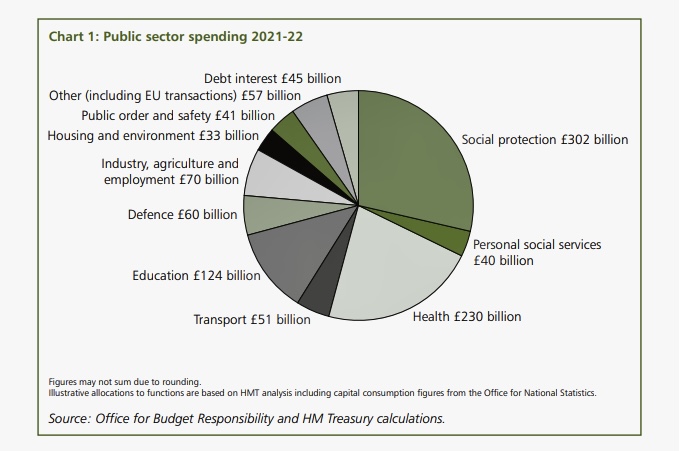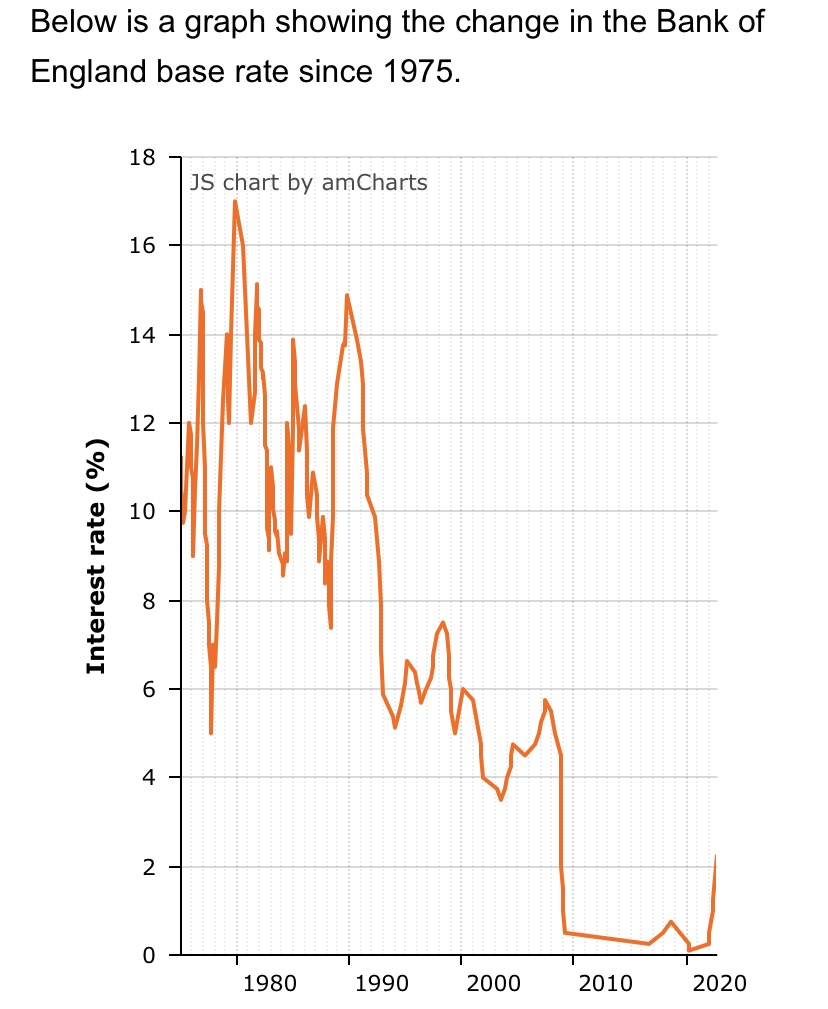Maybe like me you don’t fully understand how governments through central banks raise money to pay for government expenditure.
What is government expenditure? What do they need money for?
1.Social Protection ( Welfare )
2.health (NHS)
3.Education
4.industry, agriculture & employment
5.Defence
6.Personal & Social Services
7.Public Order ( The Police )
8.Transport
9.Other
10.Debt (to Fund borrowing)

Let’s face most citizens of the U.K. are busy living their lives to consider government expenditures. But most citizens have to pay tax and that tax is used for these services.
Let’s look at the overall U.K. government expenditure for 2021 was £712 billion pounds. Tax receipts was £716 billion pounds.
In simple terms the government either is in surplus when receipts of tax are higher than government spending and the opposite is true if government spending is higher than tax receipts received then the government is in deficit.
This so far sounds nice and simple but the problem lies for all governments is accrued debt over several years or more. If the U.K. government was in surplus each and every year of its expenditure and tax receipts it wouldn’t accrue any debt!
But in reality this isn’t the case and the U.K. government is usually in yearly deficit. And this deficit is carried forward year on year.
In 2020 the accrued debt was £ 1877 Billion pounds that was 85% of Gross Domestic Product. What’s GDP? Well it’s actually the strength of the economy how well it’s doing or national production?.How’s it measured?
This is were things start getting little more complicated:
Different Types of GDP
Economists use GDP for many purposes, such as comparing the economy of two different countries or tracking changes in the size of an economy.
To help with these comparisons, they’ve come up with multiple types of Gross Domestic Product to track, each with pros and cons and different purposes.
Nominal GDP
Nominal GDP is the simplest type and also one of the most frequently used. It’s simply the value of everything an economy produces without making any adjustments or worrying about things like inflation.
That also means that it is the easiest to calculate.
This means it can be used for comparing different economies or measuring output but is less useful for comparisons across time periods.
Real GDP
Real GDP measures Gross Domestic Product with adjustments for inflation.
Inflation is the process through which money loses purchasing power over time. If you’ve ever heard your grandparents talk about buying a loaf of bread for a nickel even though it costs a few dollars today, you’ve heard about the impacts of inflation.
Because of inflation, nominal GDP can rise even if an economy’s true production remains static.
Why is inflation so bad? It’s a term to explain rising prices. Inflation occurs when people spend more on the same amount of goods and services than they were, say, a year ago.
When everybody pays more and gets less for it, it can have some profoundly devastating effects on the economy—and some people get hurt more than others. “Inflation makes all of our income and savings less valuable. “
Inflation eats away at your savings and reduces the purchasing power of them.
Let’s look at U.K. inflation rate which is posing a real problem to most U.K. citizens due to mortgage loans and repayments.
Inflation is nearly 10% which it’s the highest it’s been since the early 1980’s which was over 9%. The standard variable rate for a mortgage now is 4.25% but the TSB bank are charging homeowners 5.74%

You can see by the graph bank base rates are moving up and in turn so will mortgage base rates. Which are nearly double bank base rates.
Let’s go back to to how the government funds that deficit of £ 1877 Billion pounds?
It’s by the bond or gilt market. What’s a government bonds or a gilt backed security? how’s the money raised? who buys government back bonds or gilts?
What are government bonds?
Government bonds are known as gilts in the UK and are an investment vehicle that provides a fixed rate of return until their expiry.
Gilts are a loan from the bondholder to the government. The issuing government pays a fixed interest rate to the investor until the bond reaches its maturity date. When the maturity date is reached, the government pays the bondholder the face value of the bond.
Government bonds pay a steady income from the gilt’s coupon rate (the fixed payment of interest) to the investor. They also provide insight into the market sentiment for the issuing country, as interest rates, inflation rates and currency strength all impact bond prices.
Why does the government sell bonds?
Government bonds are sold in order to raise money for government spending, whether this be for infrastructure or daily community projects. In the UK, gilts are used to help with future developments for pensions and life insurance markets.
How do government bonds work?
Government bonds have different names depending on which country they are issued by. However, there are some key features that all government bonds have in common:
Maturity
Maturity represents the bond’s expiry date. Once the bond expires, the original capital invested is returned to the bondholder. The maturity dates of a bond usually vary from 5 years up to 30 years. However, the UK’s DMO (Debt Management Office) recently released a 55-year maturity gilt.
Coupon
A bond’s coupon code is a fixed payment rate of interest from the bond issuer to the bondholder. Bonds on the open market will have varying coupon rates, as they would have been released to the market at different times.
Most bonds pay a fixed interest rate that becomes more attractive if interest rates fall, driving up demand and the price of the bond.
Conversely, if interest rates rise, investors will no longer prefer the lower fixed interest rate paid by a bond, resulting in a decline in its price.
From the above video rising interest is not good for existing bond holders the interest is less for an existing bond holder then the new bonds issued. Not good for servicing government debt either because they have to pay higher rates of interest on new issued bonds to the investor.
With Bonds when interest rates go up value of the bond value goes down before maturity. Interests rates go down the value of the bond goes up. These bonds are traded on the bond market or secondary investment market.
Gilts are bonds issued by the UK government. More specifically, the debt securities are issued by the Bank of England, by His or Her Majesty’s treasury, and are listed on the London Stock Exchange (LSE).
The term is also used in other Commonwealth nations, such as India or South Africa. However, typically, the term gilt is in reference to UK gilts or bonds.
Therefore U.K. government back Gilts or bonds are an IOU to the investor to pay an set amount of interest until the bond come to maturity when you get the original investment back at maturity. Not like stocks and shares when you buy a share of a company and get a fluctuating dividend and a fluctuating share price.
Hence why government back securities are one of safest forms of investment for income and why pension funds like them for there pension portfolios.
But all government IOU’s ( a promise to pay the lender) are based upon prudent economics. The U.K. now is going through a currency crisis with high levels of government debt high levels of inflation geopolitical problems with energy costs and the war in Ukraine.
All these things in the U.K. economy contribute to the present headwinds. Financial markets are all about confidence a perceived competence of government economic management.
Markets don’t like wishful or magical thinking they like planned detailed economic realities. Some politicians have an ideology or a belief or wishful thinking or a mental construct of the future economy.
Markets can see right through these type of magical thinking ideology driven politicians hence they have to go! The chancellor of exchequer has gone or been sacked by a novice prime minister who’s whole economic premise was based upon low taxation low state welfare support and trickle down economics now she the prime minister will have to go! . Since Brexit the U.K. economy has gone through a number of massive headwinds will this be our fourth prime minister to be removed from a power since we left the European Union. Financial markets are saying that Brexit was a calamitous decision for the economic well being of the U.K. economy!
Breaking ofThe Brexit Bubble